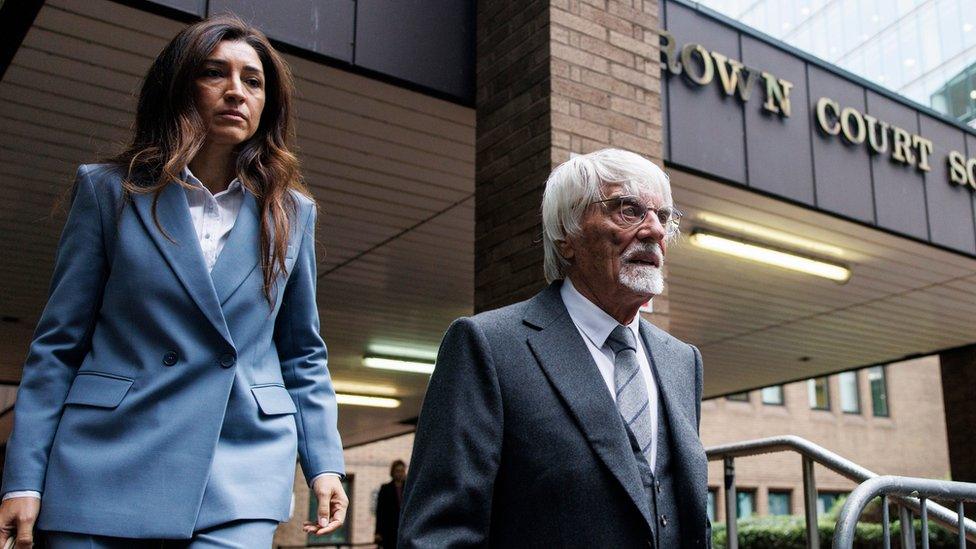Bernie Ecclestone pleads guilty to fraud
- Published

Ecclestone agreed to repay almost £653m to HM Revenue and Customs
Bernie Ecclestone, the former boss of Formula 1, has been given a suspended sentence after pleading guilty to fraud.
The 92-year-old did not declare more than £400m held in a trust in Singapore when asked by tax authorities in 2015.
Ecclestone has agreed in a civil settlement to repay almost £653m to HM Revenue and Customs (HMRC), a court heard.
He was sentenced to 17 months in prison, suspended for two years.
The billionaire had originally been due to stand trial next month after initially pleading not guilty.
The settlement covers Ecclestone's tax affairs over the past 18 years, including interest and civil penalties.
The court was told that a meeting took place between Ecclestone and HMRC officers in July 2015.
It heard that Ecclestone was "seeking to a draw a line under investigations into his tax affairs" because he "was fed up of paying huge bills for advice".
At the time, he declared he had only one trust which was established on behalf of his daughters.
According to the charge, he had told HMRC he was "not the settlor nor beneficiary of any trust in or outside the UK".
But following an investigation which HMRC has previously described as "complex and worldwide", that answer proved to be inaccurate.
On Thursday, Ecclestone arrived at Southwark Crown Court with his wife Fabiana and spoke only to tell the judge "I plead guilty" and to confirm basic details.
He appeared frail as he rose to address the judge in court.
His legal team argued that the former F1 boss should not face a prison term, owing to his advanced age, medical issues, and low level of risk to the public.
Defending Ecclestone, Clare Montgomery said the defendant "bitterly regrets the events that led to this criminal trial".
Speaking in court following Ecclestone's guilty plea, prosecutor Richard Wright said the defendant had knowingly given an "untrue or misleading" answer to HMRC when he told them he had no further trusts outside the UK.
He continued: "As of 7 July 2015, Mr Ecclestone did not know the truth of the position, so was not able to give an answer to the question.
"Mr Ecclestone was not entirely clear on how ownership of the accounts in question were structured.
"He therefore did not know whether it was liable for tax, interest or penalties in relation to amounts passing through the accounts.
"Mr Ecclestone recognises it was wrong to answer the questions he did because it ran the risk that HMRC would not continue to investigate his affairs.
"He now accepts that some tax is due in relation to these matters."